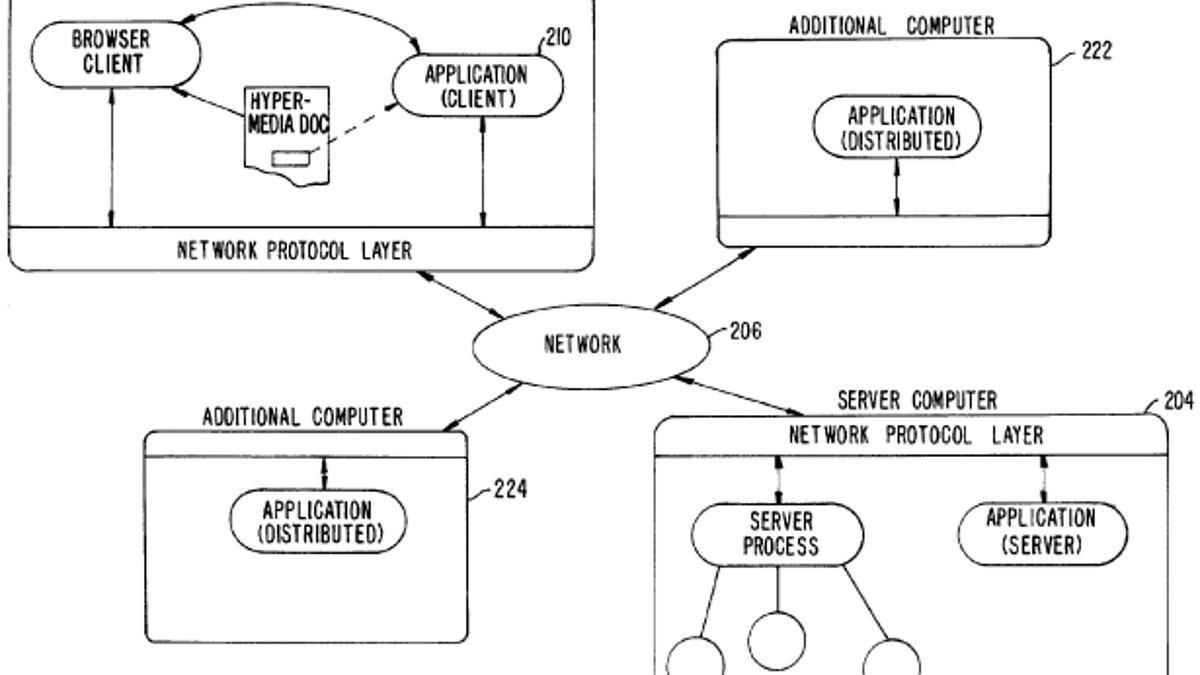Landmark lawsuits under way over who owns the Interactive Web
Michael Doyle and his company Eolas claim several prominent Web companies, including YouTube and Amazon, violate a patent it holds that dates back to 1994.

Some of the Internet's most prominent companies are arguing a case in East Texas, claiming they don't violate patents related to the "Interactive Web."
Lawyers for Yahoo, Amazon, and YouTube, among other online giants, have descended on Tyler, Texas, to defend themselves against patent-infringement claims brought against them by a small firm, called Eolas Technologies.
Wired was first to report on the lawsuits.
Eolas has used its many patents to sue companies over the years. The company's best-known suit was against Microsoft, when it argued that the software giant's Internet Explorer used plug-ins and applets that infringed a patent it held. Microsoft was able to appeal an early ruling that required the company to pay Eolas over $500 million, but eventually settled the case out of court for an undisclosed--but reportedly massive--sum.
Eolas' current lawsuits against prominent Web companies could be its biggest yet. The company argues that a patent its founder Michael Doyle, along with two co-inventors, were awarded back in 1998, and filed for in 1994, is being violated by a host of Web sites byway of online video streaming, search suggestions, and other "interactive" elements on pages.
"A system allowing a user of a browser program on a computer connected to an open distributed hypermedia system to access and execute an embedded program object," the patent's abstract description reads. "The program object is embedded into a hypermedia document much like data objects. The user may select the program object from the screen. Once selected the program object executes on the user's (client) computer or may execute on a remote server or additional remote computers in a distributed processing arrangement."
Eolas is seeking royalties to the tune of more than $600 million for alleged patent violations. According to Wired, over half of that sum could come from Yahoo and Google.
That said, Eolas will only get what it wants by winning four back-to-back trials. The first case is being heard this week by a jury that will need to determine if the patent--and another the company was awarded in 2009 that builds upon the earlier intellectual property--are valid.
To scuttle Eolas' arguments, the Internet's father, Tim Berners-Lee, testified before the court on Tuesday morning, according to Wired. He reportedly argued that allowing the patents to be upheld could prove to be a major threat to the Internet as it's known today.
But this case is just one piece of the Eolas strategy. The company has already entered into licensing agreements with Office Depot, Rent-A-Center, Playboy, Oracle, and others, over the patents, giving Eolas some support for its lawsuit claims.
Eolas, Google, and Yahoo did not immediately respond to CNET's request for comment.

